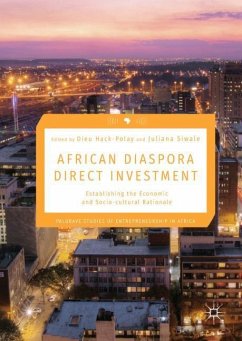
Employee Motivation in Saudi Arabia
An Investigation into the Higher Education Sector
Versandkostenfrei!
Versandfertig in 6-10 Tagen
76,99 €
inkl. MwSt.
Weitere Ausgaben:

PAYBACK Punkte
38 °P sammeln!
This book investigates the relevance of Maslow's hierarchy of needs as a theory of motivation, whilst taking into account variances in culture and individual experiences and perspectives. Focussing on higher education, the book responds to the call for providing alternative conceptual models, other than those originating from the Anglo-Saxon world. The authors take a contextual approach and use the case of Saudi Arabia to understand motivation in a collectivist, highly religious and conservative society of the Middle East. Providing empirical findings from a study carried out at two Saudi univ...
This book investigates the relevance of Maslow's hierarchy of needs as a theory of motivation, whilst taking into account variances in culture and individual experiences and perspectives. Focussing on higher education, the book responds to the call for providing alternative conceptual models, other than those originating from the Anglo-Saxon world. The authors take a contextual approach and use the case of Saudi Arabia to understand motivation in a collectivist, highly religious and conservative society of the Middle East. Providing empirical findings from a study carried out at two Saudi universities differing in their religious outlook, this book reveals a hierarchy of needs that is significantly different from the theory proposed by Maslow. Religion, culture and gender are explored in detail as the authors investigate the relevance of Maslow's theory in a region that is of growing interest to policy-makers and practitioners in North America and Europe, offering a truly insightfulread to an international audience.












